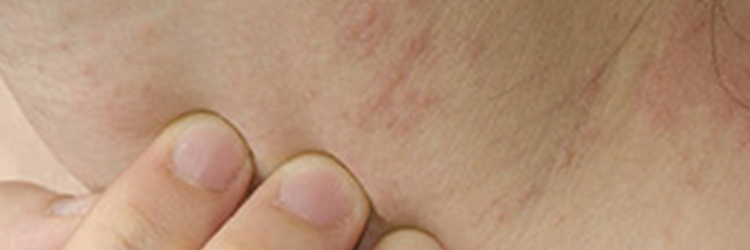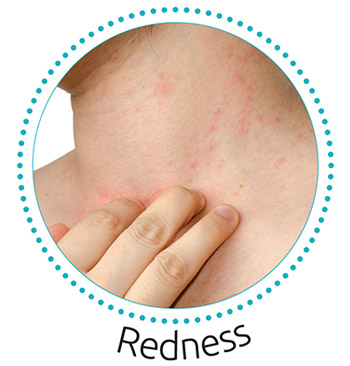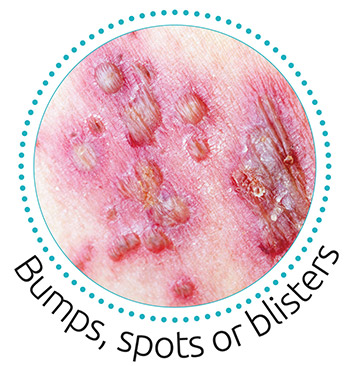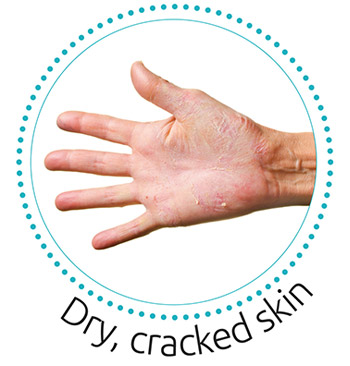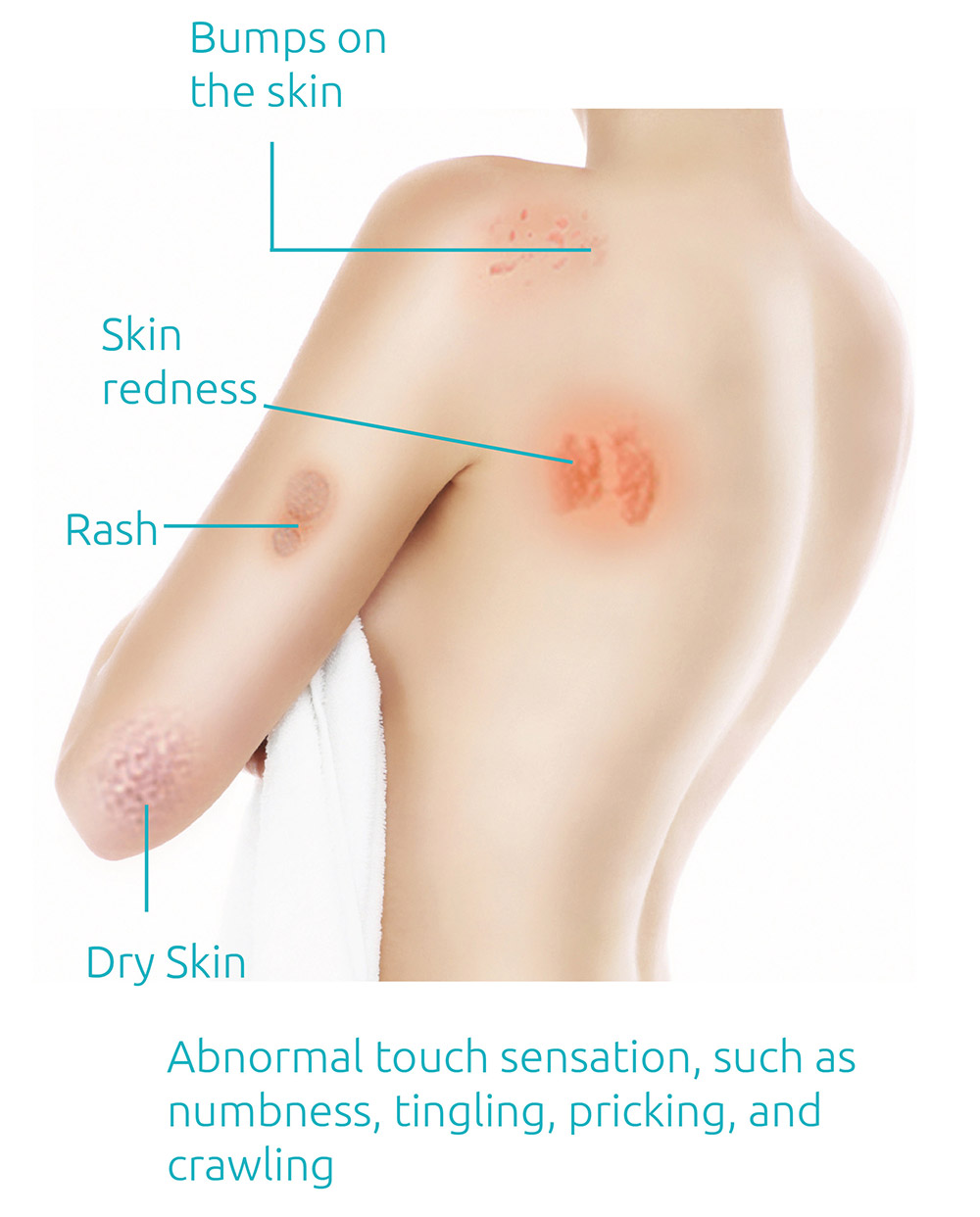Itchy skin (Pruritus) is an uncomfortable, irritating sensation that makes you want to scratch. It is the most frequent symptom in dermatology. With point prevalence of 13.5%, Itchy skin (Pruritus) has substantial impact on quality of life and emotional well-being.
Itchy skin may appear as
Possible causes of itchy skin include:
Dry skin due to environmental factors such as hot or cold weather with low humidity and washing or bathing too much
Internal diseases including kidney failure, iron deficiency anemia, thyroid problems and cancers
Nerve disorders such as multiple sclerosis, pinched nerves and shingles (herpes zoster)
Reactions to drugs, such as antibiotics, antifungal drugs or narcotic pain medications
During pregnancy, some women experience itchy skin, especially on the abdomen, thighs, breasts and arms.
Dry skin due to environmental factors such as hot or cold weather with low humidity and washing or bathing too much
Itchy Skin: Manifestations
Medications and skin healing
- Corticosteroid creams. Applied topically, their usefulness is limited to short-term treatment as they can cause adverse effects, such as telangiectasia, atrophy, and striae if used long term.
- Calcineurin inhibitors. Drugs, such as tacrolimus (Protopic) and pimecrolimus (Elidel) in cases when itchy area isn’t large.
- Oral antihistamines. Includes over-the-counter drugs cetirizine and loratadine (that don’t make you sleepy), and diphenhydramine that make your sleepy.
- Antidepressants. Selective serotonin-reuptake inhibitors, such as fluoxetine and sertraline, may help reduce various types of skin itching.
When to see a doctor
- Lasts more than two weeks and doesn’t improve with self-care measures
- Is severe and distracts you from your daily routines or prevents you from sleeping
- Can’t be easily explained
- Affects your whole body
- Is accompanied by other symptoms, such as extreme tiredness, weight loss, changes in bowel habits or urinary frequency, fever, or redness of the skin

